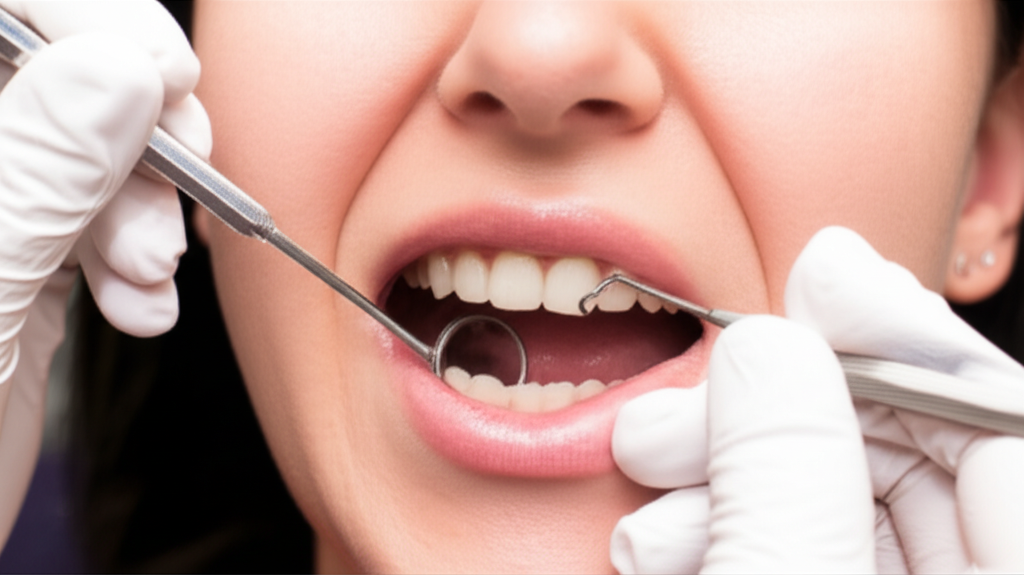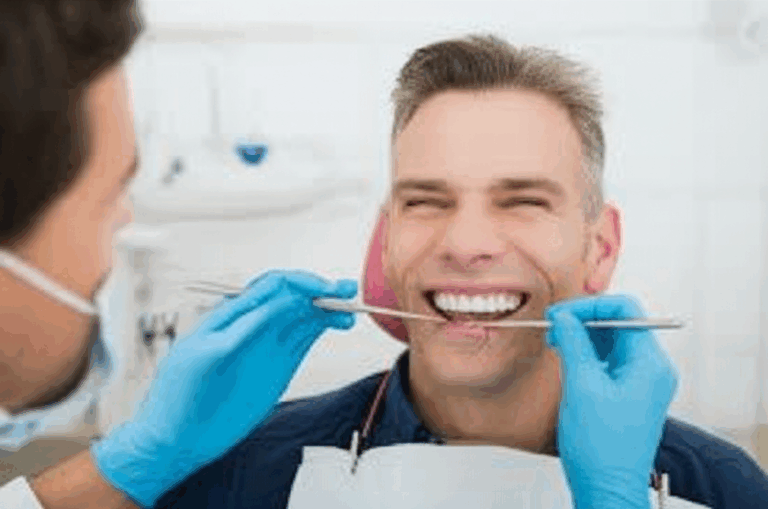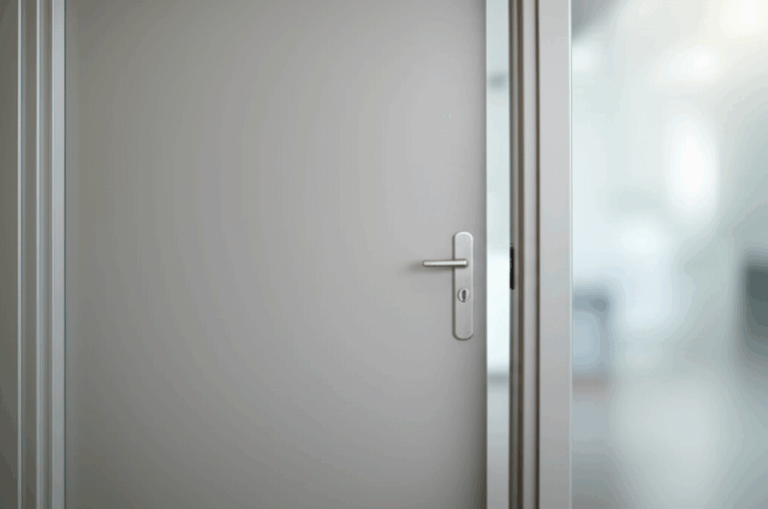
Can a Dentist Fix Periodontal Disease? My Experience and What You Need to Know
Table of Contents
1. Introduction: My Journey With Gum Disease
I never thought I’d be someone with gum problems. Brushing every day seemed like enough, so gum disease sounded like something that wouldn’t happen to me. Then one day, I saw blood in the sink and my gums were sore. That changed everything.
Like you, I wondered, “Can a dentist really fix this?” Here’s what I found out—yes, dentists and gum specialists can do a lot to help gum disease. But it’s a team effort, and I had to take it seriously and do my share too.
Let me share what I learned about gum disease, how it happened to me, and answer the big questions you probably have right now.
2. What Is Periodontal Disease? (And What I Wish I Knew Sooner)
To be honest, I didn’t even know what “periodontal disease” meant at first. It’s just long-term swelling of the gums and bone around your teeth (the periodontium is the name for that area).
There’s two main stages:
- Gingivitis: This means early gum disease. Here, the gums are puffy but your bone is still fine. The good news? It can go away if you clean well and see your dentist.
- Periodontitis: This one’s worse. The swelling goes deeper and hurts the bone holding your teeth. If bone is lost, it doesn’t come back on its own. You can stop the disease here, and sometimes help some tissue come back if you’re lucky, but you can’t just undo everything.
What Causes Periodontal Disease?
Honestly, I thought I brushed good. But sticky stuff (plaque) hides easily. You miss a spot, and the germs take over. Smoking, being diabetic, family history, even being stressed out can all make gums worse.
Other reasons? Not seeing your dentist, eating badly, or just never thinking about gum health. If your family gets gum trouble, you have to take extra care.
3. Early Warning Signs: How I Realized Something Was Wrong
What made me really pay attention? I started seeing these things:
- Gums bleeding when I brushed or flossed
- Gums looked red, swollen, and felt sore
- Bad breath all the time, even after I brushed
- Gums looked like they were pulling away from my teeth
- A tooth felt kind of loose
Some days, my gums felt puffier. Sometimes I woke up with a weird taste. I ignored it at first—big mistake. Your body doesn’t give you these signs unless something’s wrong.
4. Dentists vs Periodontists: Who Helped Me and When
Where did I go first? My normal dentist. Here’s how it works:
- Dentists: They find and fix most gum troubles, especially if they’re early or just starting. They clean your teeth, show you how to brush and floss better, and do deep cleanings.
- Periodontists: These are gum doctors, real specialists. If things are really bad, your dentist might send you to a periodontist. They take care of hard cases, stuff that needs surgery, or bringing back lost gum or bone.
For me, my dentist started the treatments, then sent me to a periodontist when my gum pockets stayed deep and bone was lost. That’s normal—getting a specialist is just getting more help.
5. How My Dentist Diagnosed and Started Treatment
It isn’t just guesswork. Here’s what my dentist did (and you’ll probably have too):
- Probing: Using a thin stick to measure the space (or “pockets”) beside each tooth. If it’s deep, that’s not good.
- X-rays: To see bone loss that’s hiding under the gum.
- Looking at my gums: Checking for redness, swelling, and if the gums are pulling away.
Once they knew how bad things were, my dentist made a plan just for me. If you have gingivitis or just a little periodontitis, your dentist can help with most of it.
6. Treatment for Early Gum Disease (My Gingivitis Story)
I remember my dentist saying, “You got this early—you’re lucky.” When it was just gingivitis, treatment was easy:
- Professional cleaning: They got all the junk off my teeth, on top and just under the gums.
- Better brushing at home: I left with a handful of tips—brush twice a day, use an electric toothbrush, floss every night, and sometimes use a mouthwash.
A few weeks later, my gums stopped bleeding and felt way better. If you think you only have early gum problems—go to the dentist now. You can fix it before it gets worse.
7. Battling Periodontitis: From Deep Cleaning to Specialist Care
But what if you wait too long (like I did the next time)? Then, it’s more serious. Here’s what I went through with worse gum disease:
Deep Cleaning (Scaling and Root Planing)
They make your mouth numb, then clean off all the hard junk above and below your gums. My hygienist said, “It’s like cleaning under the hood, not just on the outside.”
It took a few visits. After each time, my gums felt sore for a few days—a cold pack and pain pills helped. You might feel a little better right away, but your gums really heal over weeks.
Antibiotics: Sometimes Used
In my case, my dentist put some medicine gel right into a few deep pockets. Sometimes they give you pills to fight infection.
Maintenance
After my deep cleaning, they set me up for cleanings every 3 or 4 months, not just every 6 months. Sticking with this helped a lot.
8. Advanced Options: Surgery, Grafts, and Lasers—My Choices and Fears
If the pockets stayed deep and bone loss continued, my dentist called in the periodontist. Now there were new options:
Lasers
Some gum doctors use lasers for treatment (like LANAP). It sounds fancy, but it just means cleaning out sick tissue and trying to help gums heal faster, sometimes with less pain.
Flap Surgery
This is where they pull back your gums to clean out deep junk and smooth the bone. I was scared about surgery, but my gum doctor said they use numb medicine, and most people feel fine after a short time with good care.
Gum and Bone Grafts
If my gums pulled way back, they talked about gum grafts. If the bone was gone, they talked about bone grafts. These things can sometimes help new gum or bone grow, but you shouldn’t expect miracles.
Did I Need Them?
Not everyone gets these! Your dentist and periodontist will figure out what you need. Deep cleanings and staying on top of things kept my mouth okay, but if things get worse, there are options.
9. Is Periodontal Disease Curable? What Happened in My Case
Here’s what everyone wants to know: Can you “cure” gum disease?
The Real Answer
- Gingivitis: Yes, you can get rid of it. My first problem healed with good care.
- Periodontitis: You can’t really just rewind and get all bone back. But you can stop it getting worse, keep your teeth, and sometimes grow a little new gum or bone.
For me, getting treatment and keeping up with checkups stopped things getting worse. I still have some lost bone, but my pockets are shallow now and my teeth feel strong. That’s a win for me.
10. What Influenced My Healing and Recovery
Here’s what I learned made a difference:
- Doing my part: If I skipped cleanings or didn’t listen to advice, my gums got worse. You have to stick with it.
- How bad it was: Catching it early made things much easier. Waiting made healing hard, and some damage sticks around.
- Lifestyle: Smoking makes everything harder. Even one cigarette slowed down my healing. Eating right, not stressing out, and keeping blood sugar steady all help.
- Regular visits: For me, every three months. If you’ve had gum problems, don’t miss checkups.
My gum doctor said, “It’s easier to stay healthy than to fix things after they break.” That is so true.
11. What to Expect During and After Treatment
Here’s what it was like for me, for real:
Deep Cleaning
- Does it hurt? Not with numb medicine. After, there’s soreness and tender teeth for a few days.
- How long to feel better? A day or two to bounce back, but gum tenderness stayed a week.
Surgery (If You Need It)
- Pain or swelling: Not as bad as I worried—helped with pain medicine and ice.
- Healing: Flap surgery took about a week. Bone graft stuff might take weeks or even a couple months.
- Eating: I ate soft foods for a few days.
Medicine or Mouthwash
After the dentist, I went home with a germ-killing rinse or pain pills—kept infection and swelling away.
Follow-Ups
Super important. If you listen to your dental team, retreatment isn’t needed much. But checking up often is key.
12. Preventing a Comeback: My Plan for Life-Long Gum Health
I don’t want bad gum problems again, so here’s my plan:
- Brush twice a day: I use an electric brush. It makes a difference.
- Floss every day: No skipping. Small brushes for between teeth help if floss is tough.
- Use a water flosser: Helped me clean deep pockets better.
- Checkups every 3 months: That’s the schedule for me.
- Healthy habits: Eating well and no smoking.
- Don’t stress: Stress really can mess up your gums.
I watch for early signs now—any bleeding or swelling and I call the dentist. That saved me more than once.
13. Costs, Insurance, and Real-World Tips I Learned
Let’s be honest: getting gums fixed isn’t cheap, especially if you wait and need harder treatments. Here’s what I found:
- Cleanings: Regular and deep cleanings are usually partly paid by insurance.
- Surgeries/grafts: These cost a lot, and insurance doesn’t always pay.
- Maintenance visits: Very needed, but not always covered. Don’t let that stop you—saving your teeth means saving money long-term.
- Fixing lost teeth: If you do lose teeth, options like bridges or implants from a crown and bridge lab, or partials and dentures from a removable denture lab, can bring back your smile.
Always ask your insurance, look into payment plans, and get cost estimates. I set up a health savings account to help me pay for things.
14. Key Takeaways: Can a Dentist Really Fix Periodontal Disease?
Here’s my short answer: Yes, dentists and gum doctors can really help gum disease. If you find it early, they can even make it go away. If it’s worse, they can stop it from getting worse.
But you have to help too—keep up with brushing, flossing, and never skip checkups.
And don’t be embarrassed if you have to see a specialist. That’s just smart when your gums need extra care.
15. Your Next Step: Advice From My Experience
If you think you might have gum problems (or just aren’t sure), get checked soon. My biggest regret was waiting too long. The sooner you act, the easier (and cheaper) it is.
Be active. If your dentist says you need something more, ask questions—know your choices. Dentistry now has so many ways to keep your mouth healthy for life.
And if you ever need repairs like crowns, bridges, or implants after gum disease, make sure your dentist works with a trusted china dental lab for quality results.
From one patient to another—I promise, it’s worth every bit of effort to fix gum disease. Don’t just hope for the best. Start today and give yourself a fresh mouth.
One last thing I learned: You only get one set of gums. Take care of them, and they’ll take care of you.








